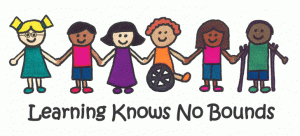
Educational opportunities go beyond the physical walls of a school. Grassroots organizations are a prominent resource for local communities searching for supplementary educational opportunities. Grassroots organizations provide families and teachers impacted by special education with a forum of open discussion and information to provide special needs children with the resources and opportunities they need and deserve. Furthermore, grassroots organizations can develop into a group of advocates striving to achieve educational reform for special education, ensuring that special needs students obtain the resources and opportunities promised to them legally by urban public schools.
In regards to urban education, urban areas cause a higher concentration of individuals seeking information and advocacy. Urban areas innately have higher concentrations of people, and when individuals are living together and are able to identify a flawed social and academic element, they join forces to voice their opinion about the change they believe needs to occur. Urban public schools are already fraught with a wide array of educational obstacles, difficulties, and problems. Unfortunately, at the long list of challenges that need to be confronted, special education happens to be towards the bottom of most urban public school’s list of priorities.
Urban public schools are legally required to support all students requiring special education. The I.D.E.A law requires all students with any type of learning disability with a free and appropriate public education. Typically, urban public schools will not initiate a student’s transition towards special education. Although, if a parent were to speak with their student’s teacher, they can request to have their child tested for learning disabilities.
If the child is identified as having a learning disability, the parents and teachers will meet to formulate an IEP for the child. An IEP is a legal document stating how the school will assist the child throughout the year in achieving his or her academic goals. The parents and teachers develop a plan in which they believe the student will be able to academically thrive. Students who are a part of special education tend to remain a part of the ordinary classroom, but will be taken aside for parts of the day to receive additional assistance as well as additional time when taking assessments. Depending on the student, they may even be put into a separate classroom with a teacher specialized in special education.
Fortunately, where urban public school’s fail to confront issues regarding special education, grassroots organizations step in to fill the educational void. Parents, and occasionally teachers, come together to form grassroots organizational support groups. These types of grassroots tend to pertain to an individual urban public school, enabling the problems to be confronted by the grassroots organizations to be fairly unanimous. If all of the individuals involved within the grassroots organization attend the same school, there are bound to be faced with similar frustrations and struggles. Therefore, grassroots organizations based around a singular public school are able to try and accommodate their child’s learning and educational development around commonly identified problems.
Alternatively, grassroots organizations can be advocacy focused on the failures of urban public schools. Advocacy groups tend to draw in a wider pool of individuals ranging from parents, teachers, advocates, and lawyers. Grassroots organizations focused on special urban education focus on educational impediments from a more general range of urban public schools. Rather than targeting issues pertaining to an individual school, these grassroots organizations will generalize the issues and target a substantial amount of the urban public schools as a whole.
A primary difficultly facing advocacy based special urban education grassroots organizations is their inability to personally implement the change they seek and believe their children deserve. Advocacy groups have the ability to publically and loudly voice their opinions on special education flaws in public schools, but they lack the governmental power of execute the change they yearn.
Special urban education grassroots organizations have the ability to perform an array of actions in an attempt to ensure that their special needs children have the best academic opportunities available to them. Grassroots organizations can act as a support group to parents and teachers requiring additional support, or they can act as advocacy groups trying to ratify structural changes within urban public schools. Regardless of the type of special education grassroots organization, each group manages to achieve awareness and social change through their persistence passion and will power. Urban areas are a hotspot of grassroots that accomplish special educational reform improvements. Through continued involvement by special education grassroots, one-day students impacted by special education will obtain all of the academic resources and opportunities they deserve.
Great Schools (Producer). (2012, November 12). What is special education? [Video file]. Retrieved from https://www.youtube.com/watch?v=KW73Rs2zz6o